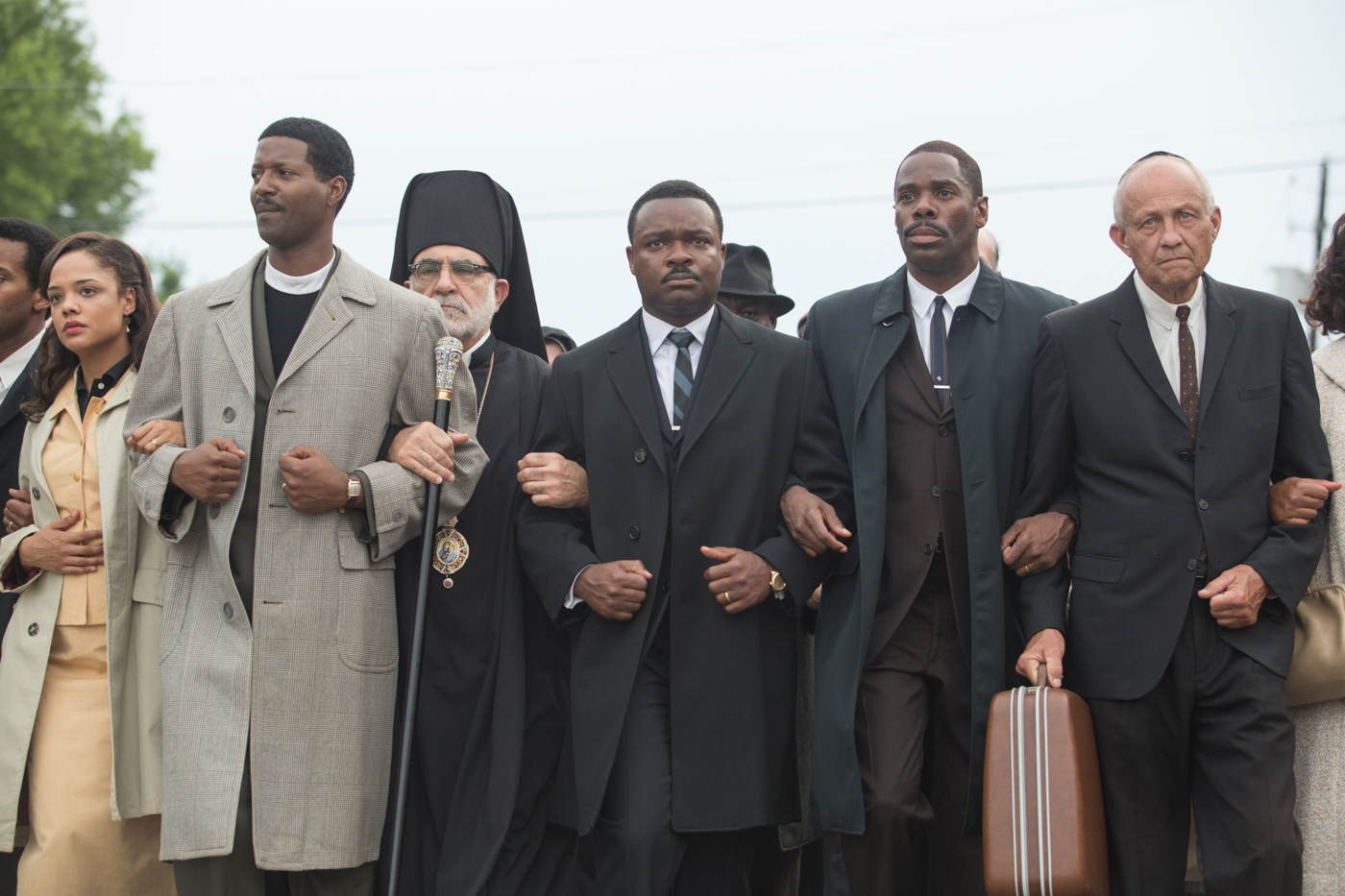In anticipation of the Academy Awards, we polled our contributors to see who they thought should win the Oscar. Once we had our winners, we asked various writers to make the case for our selection in each category. Here, Matt Zoller Seitz makes the case for the Best Picture of 2014: “Selma“.
A rare historical film that speaks to its audience rather than yelling at it or hiding from it, “Selma” is also sneakily radical: not in terms of its politics, but its style. Hollywood storytellers are often criticized for sticking with the so-called “Great Man” approach to history. Even when the man in question is in fact great—as the Rev. Martin Luther King, Jr. was—it betrays a lack of imagination, not to mention an unsophisticated view of how history actually happens. It’s not just a matter of one inspirational voice exhorting crowds of strangers to do the right (or wrong) thing; it’s an amalgamation of thoughts and decisions, strategies and counter-strategies, all of which lead to a particular outcome slowly and often imperceptibly, as a river winds itself across a plain.
“Selma,” credited to screenwriter Paul Webb and director Ava DuVernay, understands this on a deep level, and proves it by laying out the story in a decentralized, small-d democratic way, spreading around its opportunities for heroism and pettiness, and making even larger-than-life characters seem refreshingly life-sized, and allowing its characters to have multiple reasons for saying and doing things, some idealistic, others self-serving. King, played by David Oyelowo, visits Selma, Alabama to dismantle the legacy of Jim Crow, but also to keep the current wave of protests moving after a disappointing setback in Albany, Ga., where the sheriff treated protesters humanely. There’s a sense throughout that King is an idealist but also a pragmatist, and that he’s frustrated by the amount of work it takes to keep the general public interested, and by how slowly things change, and requires a certain amount of “drama” (his word) to ignite outrage and then participation.
The entire film is rooted in this kind of real-world attention to psychology and the role that plays in politics: you can see it in King’s jailhouse doubt-riddled jailhouse conversation with Ralph David Abernathy (Colman Young). You can see it in the police beatdown of Annie Lee Cooper (Oprah Winfrey), whose protest is foreshadowed in an early scene where she’s denied the right to vote.
You can see it in the hushed conversation between Coretta Scott King (Carmen Ejogo) and Malcolm X (Nigel Thatch) in which the Black Muslim suggests letting him serve as a threat to the White man and King as the alternative. You can see it in Martin Sheen’s deliberations as a judge who has the power to stop police interference with a protest, and in the scenes of clergy answering King’s call to join the second march across the Edmund Pettus Bridge, a sequence thoughtfully scored to the song “Masters of War,” its folk inflections signaling how Civil Rights protests widened to take in people of all races, ethnicities and faiths. “Selma” is a great film not just because of what it shows, but because of who it includes. In the manner of any preacher who understands how to get the message out, it pitches a big tent.












